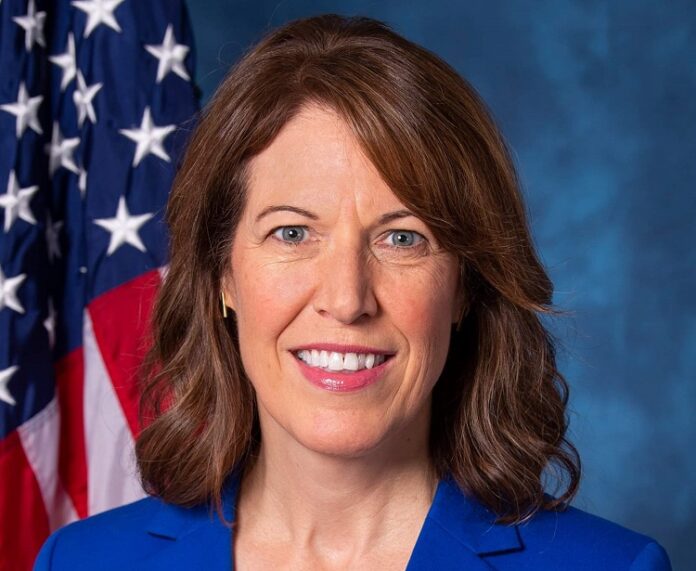
Decades of underinvestment in public infrastructure, combined with a surging demand for goods as we recover from the COVID-19 pandemic, has overwhelmed supply chains and led to higher food, energy and car prices.
I’m working with my colleagues in Congress to address these issues by investing in our infrastructure, alleviating supply chain bottlenecks, recruiting more American workers to in-demand careers and promoting public-private cooperation in both international shipping and domestic manufacturing.
I have created my own Supply Chain Solutions Agenda, which is comprised of four bills I have co-sponsored, along with the bipartisan infrastructure bill that I voted for earlier this month and the Build Back Better Act, to help lower costs and relieve the bottlenecks that have affected access to and affordability of many household items Iowa families need.
The first piece of legislation in my agenda, the MADE HERE Act, addresses labor shortages — which is where many of our supply chain issues begin. The MADE HERE Act promotes a skilled workforce here in the U.S. by bringing together educational institutions, private companies, nonprofits, labor groups and government-funded resources to solve the most pressing issues and promote domestic manufacturing.
The DRIVE Safe Act aims to alleviate the driver shortage in the trucking and logistics industries by increasing job opportunities for young truckers and enhancing safety training.
Currently, Iowa and many other states allow drivers between the ages of 18 and 21 to acquire a commercial driver’s license (CDL) — but federal law still prevents those trained truckers from driving across state lines, preventing them from helping get goods to and from our nation’s ports and transit centers.
The DRIVE Safe Act would establish new programs to allow those CDL holders to begin safely trucking across state lines — opening a new supply of drivers at a time when we really need them.
A piece of the supply-chain puzzle that many don’t see is that supply-chain disruptions aren’t just affecting the goods we’re trying to bring here: they are also affecting Iowa’s ag industry’s ability to export crops and other products to other countries around the world.
That’s why I’m pushing the House to pass the Ocean Shipping Reform Act, which will not only address port congestion but also protect Iowa agriculture by prohibiting ocean carriers from declining to pick up U.S. exports on return journeys to trade partners.
Finally, I’m a proud co-sponsor of the Critical Supply Chain Commission Act. This bill would establish a nonpartisan commission of experts tasked with studying the U.S. critical supply chain, identifying its vulnerabilities, predicting future supply chain disruptions and guiding Congress on how to meet critical supply chain needs domestically — all while mitigating dependencies on foreign powers.
Together, these bills build on the investments we’re already going to be making through the bipartisan Infrastructure Investment in Jobs Act, which allocates more than $17 billion for U.S. port modernization and invests $5 billion in Iowa’s infrastructure so our manufacturers and farmers can move goods safely and efficiently.
My colleagues and I are also currently working on passing the Build Back Better Act, which is predicted to create more than 1.5 million jobs by 2025, deliver one of the largest middle class tax cuts in history and lower costs on everything from prescription drugs and health care premiums to housing and childcare.
My agenda will not only help fix supply-chain issues, but it will also help Iowa families be more resilient to long-term inflationary pressures. I’m confident we can get this done and continue the robust economic recovery that we have seen since the beginning of this year.
Since January, the U.S. economy has created 5.6 million jobs, and unemployment claims have dropped 68%. America’s GDP has also surpassed its pre-pandemic peak, making the U.S. the first developed country to achieve this.
And businesses, workers and families have begun resuming their normal ways of life, which is both a testament to our strong recovery efforts and a further strain on our supply chain.
It’s going to take time for the world, for our country and for our state to catch back up with consumer demand and fix the bottlenecks that prevent us from doing so faster, but I’m going to continue working to make sure we have the infrastructure and workforce we need to build back better than ever.
Rep. Cindy Axne of West Des Moines represents Iowa’s Third Congressional District in the U.S. House of Representatives. She can be reached at 202-225-5476.
















